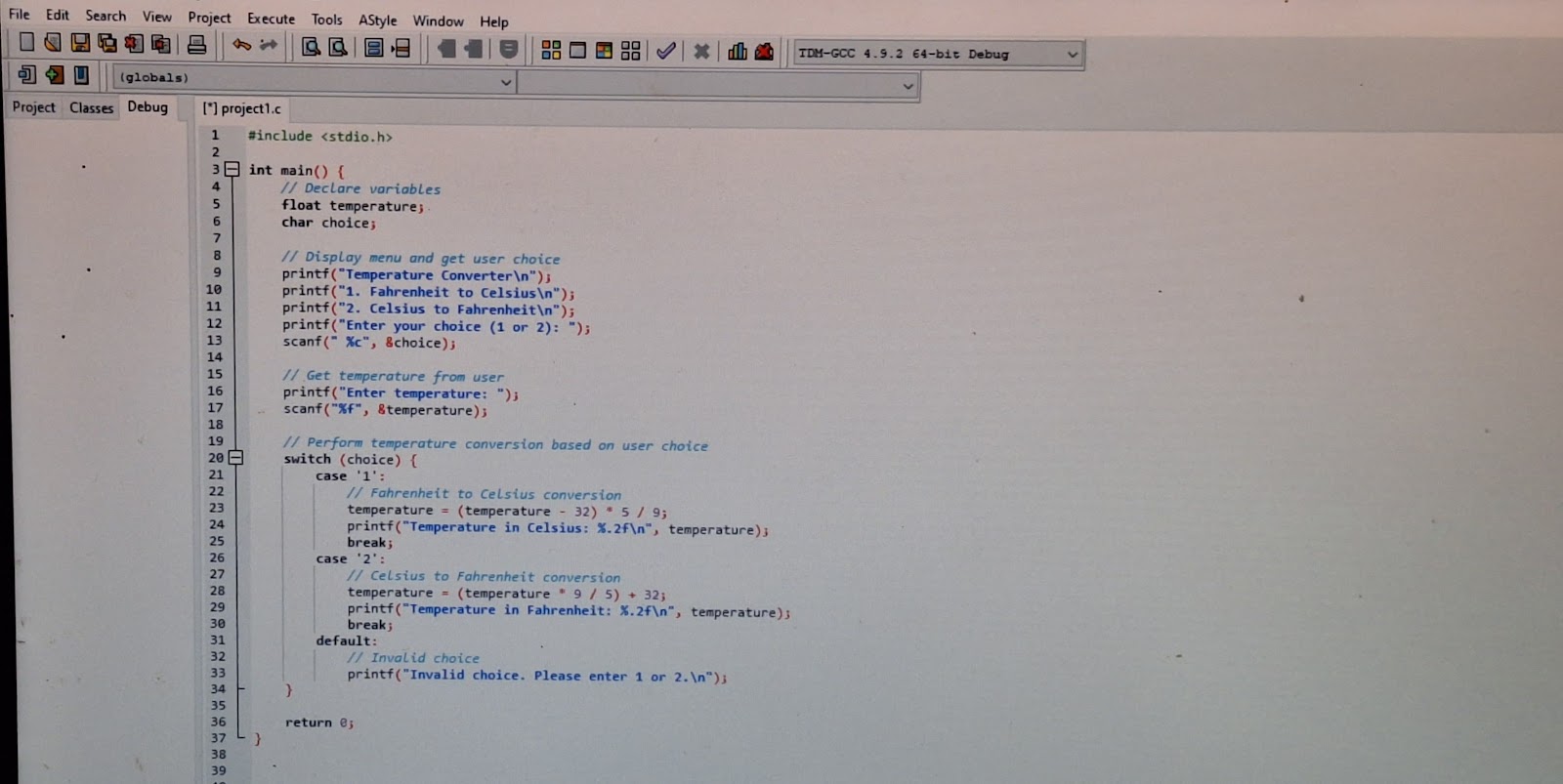In here I will show you some small projects for beginners.
1. Calculator
2. To-Do List
3. Guess the Number Game
4. Bank Management System
5. Student Grade Calculator
6. Simple File Encryption/Decryption
7. Library Management System
8. Temperature Converter
These projects I have done with dev C++ .
A) Create a Calculator
- Create a basic calculator program that can perform arithmetic operations like addition, subtraction, multiplication, and division.
- Allow the user to input two numbers and choose the operation.
- Display the result.
#include <stdio.h>
int main() {
int num1, num2;
char operator;
printf("Enter first number: ");
scanf("%d", &num1);
printf("Enter operator (+, -, *, /): ");
scanf(" %c", &operator);
printf("Enter second number: ");
scanf("%d", &num2);
switch (operator) {
case '+':
printf("Result: %d\n", num1 + num2);
break;
case '-':
printf("Result: %d\n", num1 - num2);
break;
case '*':
printf("Result: %d\n", num1 * num2);
break;
case '/':
if (num2 != 0) {
printf("Result: %.2f\n", (float)num1 / num2);
} else {
printf("Error: Division by zero.\n");
}
break;
default:
printf("Error: Invalid operator.\n");
}
return 0;
}
- Develop a program that converts temperatures between Fahrenheit and Celsius.
- Allow users to input a temperature and choose the conversion direction.
- Display the converted temperature.
#include <stdio.h>
int main() {
// Declare variables
float temperature;
char choice;
// Display menu and get user choice
printf("Temperature Converter\n");
printf("1. Fahrenheit to Celsius\n");
printf("2. Celsius to Fahrenheit\n");
printf("Enter your choice (1 or 2): ");
scanf(" %c", &choice);
// Get temperature from user
printf("Enter temperature: ");
scanf("%f", &temperature);
// Perform temperature conversion based on user choice
switch (choice) {
case '1':
// Fahrenheit to Celsius conversion
temperature = (temperature - 32) * 5 / 9;
printf("Temperature in Celsius: %.2f\n", temperature);
break;
case '2':
// Celsius to Fahrenheit conversion
temperature = (temperature * 9 / 5) + 32;
printf("Temperature in Fahrenheit: %.2f\n", temperature);
break;
default:
// Invalid choice
printf("Invalid choice. Please enter 1 or 2.\n");
}
return 0;
}



Comments
Post a Comment